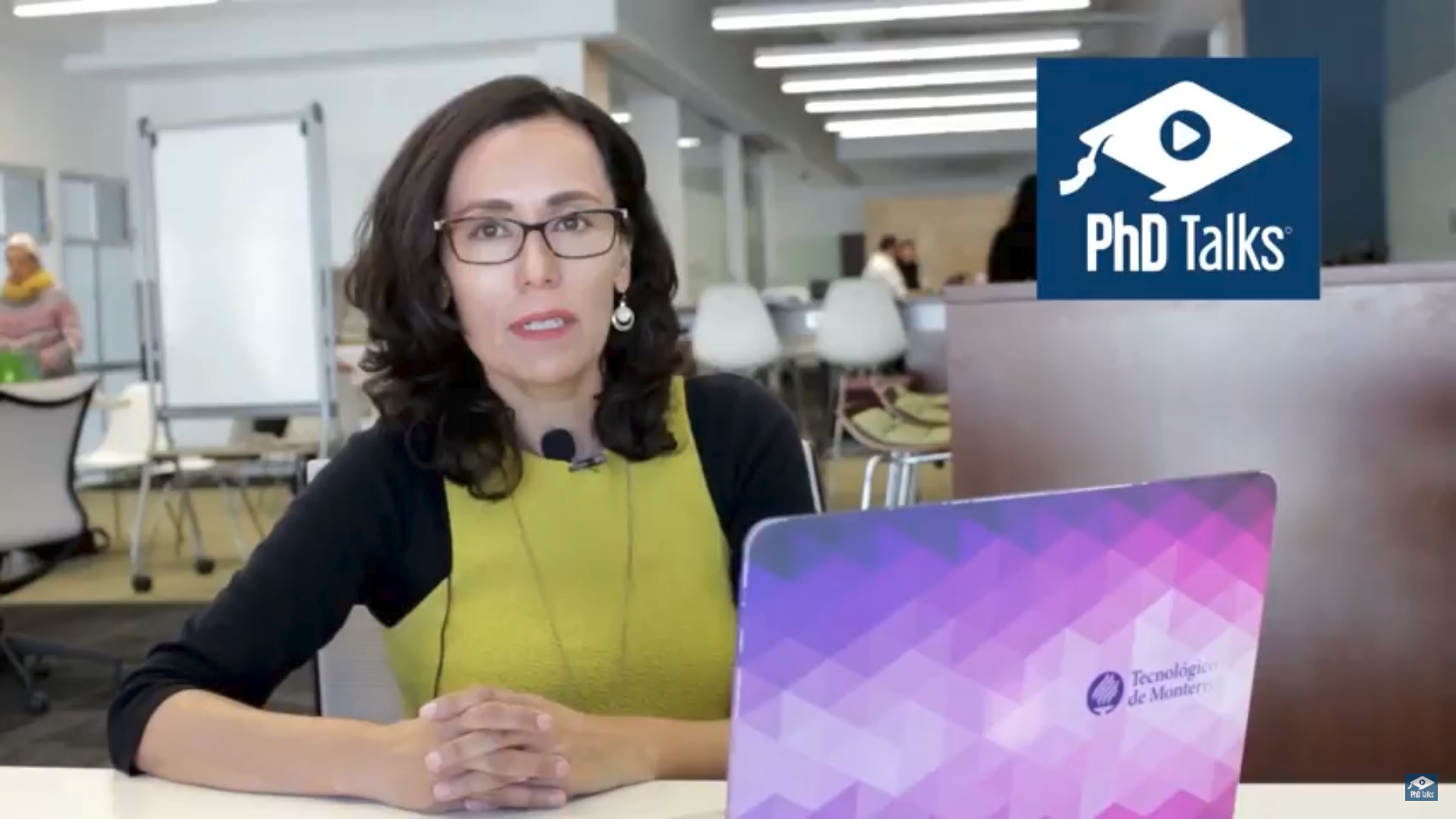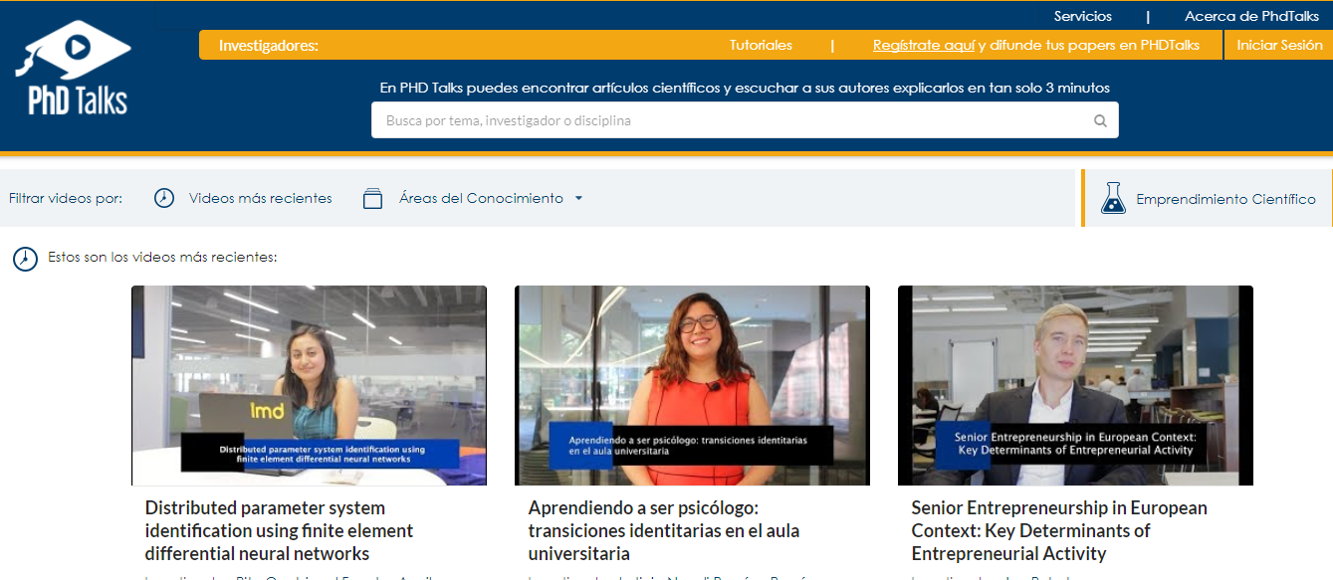By Alejandro Navarrete / CONECTA
The idea of PHD Talks, a project of three Tecnológico de Monterrey academics, is to disseminate high-level scientific research through simple videos of less than 3 minutes.
Lucía Rodríguez Aceves and Gabriel Valerio, researchers at Tec de Monterrey, campus Guadalajara and Monterrey, respectively, came up with the idea while walking on a mountain in Monterrey.
“I told him that we lacked good platforms for getting information and that I had been recently learning a lot through video tutorials. In addition, he wanted to make science “sexy”. As a result of that talk, we gave shape to the project “, explains Rodríguez.
Two years from that, PHD Talks has become a reality. It already has 55 registered researchers from 12 different universities, must of them from Mexico, and two from other countries.
“There are about 7 million researchers in the world. Only in Scopus there are 1.2 million new articles published each year. This shows the potential of the platform”, says Rodríguez, in an interview with CONECTA.
Bringing together agile videos that showcase opinion leaders for the new generations, with the rigor of scientific research is a potentially revolutionary idea, and its creators see it as a great opportunity for social advancement.
Rodríguez says that they seek to facilitate the explanation of scientific research topics, so that they are easy to find and understand for students, researchers and even for the general public.
The videos are edited, uploaded on YouTube and shared on the platform.
PHD Talks platform.
“Some journals, scientific journals, ask you for a PowerPoint presentation or a summary video of your article to be published. However, the point of this platform is that it integrates everything in a friendly way, no matter the magazine or university.
“Yes, there are very good databases, repositories of scientific articles, but they are in text. We are adding value to the trend of information consumption through video. Undergraduate and higher education students are increasingly acquiring information through these formats,” he explained.
The guarantee of PHD Talks is that all videos are of researchers who have actually published a research article in a serious journal. In fact, in the description of the video, the link to the full article is shared.
For the user, the advantage is to easily find the explanations of scientific articles from different branches in a more agile and friendly format than what is now available. For researchers, the gain is that their work gets to be shown.
PHD Talks has received support from Tecnológico de Monterrey for its brand development and Jalisco state funds to advance its business.
The project is still in the initial stage. However, they already envisage expanding the platform to have videos not only in Spanish, but also in Chinese, English and Portuguese. In addition, in a month they plan to have the system ready for researchers to record their videos directly on their platform quickly and easily.
Currently, four persons are part of the project. In addition to Aceves and Valerio, also Rubén Valencia, professor of Tec Guadalajara and who, as a user experience specialist has contributed with the construction of the platform, and Noemí Sanabria, specialist in audiovisual production.
Going further from the trend of agile and short videos, PHD Talks also takes advantage of the claim for open scientific information.
At the Research Conference of Tecnológico de Monterrey, which will be held in Monterrey from January 23 to 26, there will be a day dedicated to “Open Access”, during which the issue of open and public dissemination of academic research will be addressed.
You can enter the platform of PHD Talks through WWW.PHDTALKS.COM
This article from Observatory of the Institute for the Future of Education may be shared under the terms of the license CC BY-NC-SA 4.0 
)
)


)